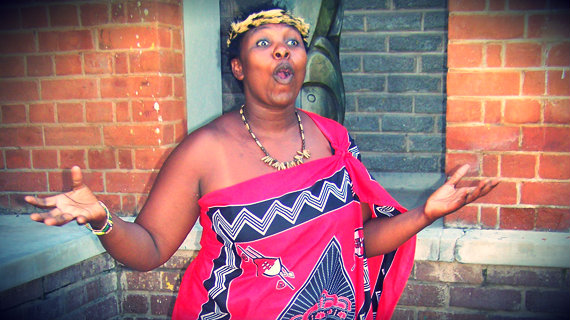
FOLLOWING an article I wrote three weeks ago about the need for informed research and statistics on the arts entertainment market in our region and in particular Bulawayo, one of Zimbabwe’s arts gurus Cont Mhlanga, went ahead to conduct a survey on Bulawayo’s top arts groups based on an audience that graced Amakhosi’s Dreams To Fame show recently.
BY NKULULEKO INNOCENT DUBE
The results were published last week and since then my inbox has been infested with a lot of counter opinions, accusations and apparently a lot of denial. It would appear that most people especially artistes, felt Mhlanga’s survey did not reflect reality.
To be honest I am very happy that the article sparked debate and even inspired action from people so well respected in the field like Mhlanga. I for one do not even know some of the groups that came tops in the Amakhosi survey and I cannot even put faces to their composition.
Nonetheless those that are in denial are mainly those that still believe they are what the people want to see. They are those that feel they are the most popular or to be specific the best the region has to offer in music, dance and in theatre. To start with, debate is good. Debate is mother of investigation and author of solutions.
We cannot oppose Mhlanga’s survey when we have no alternative survey or statistics to show for it. The only way we can prove him wrong is to conduct our own research too and validate our different viewpoints. In the meantime the question still remains. Are we as musicians, as theatre practitioners, poets, dancers, promoters and media giving the Bulawayo public what they want?
The fact that we need to find out what the demands of our market are and the needs of the people are can never be underestimated. In my further discussions with Mhlanga, it became apparently clear that we need to push for a fullscale research on what the Bulawayo entertainment market wants.
We also need to create market segments based on age, religion and even orientation. The market segments could be 17-34 years, 16 years and below and 35-50 years, and even probably 50 years and above.
- Chamisa under fire over US$120K donation
- Mavhunga puts DeMbare into Chibuku quarterfinals
- Pension funds bet on Cabora Bassa oilfields
- Councils defy govt fire tender directive
Keep Reading
Members of the public were very honest in their responses to me. Some said they will never take their families to certain venues and expose them to violence, alcohol abuse and young people half naked and kissing all night. Some felt promoters took them for granted.
They said they were forced to pay huge amounts to watch shows yet after paying they were treated with disrespect because the shows never start on time and as late as they do, the main act will come on stage in the wee hours of the night and disappear in a wink.
They said they felt imprisoned in venues so that they spent as much money as they had of their hard-earned cash before they were given what they really came for. Another respondent felt there was no longer room for creativity digestion.
Her point claims: it looks like all shows in Zimbabwe are for fast music and dancing. Chairs are removed from venues and people are generally in drunken stupor the whole night dancing frantically and passing out on the dance floor.
Some won’t even tell you what the musician or artiste they came to watch was dressed like in the next morning. What happened to sitting down at shows and watching creativity of the lead singer, the bass player, the dancer and applauding them? Slow music has died out and so everything now is all about getting everybody to dance, shout, jump the whole night.
I agree with Mhlanga when he says most of us artistes are too self-centred. We are always chasing the celebrity status and forgetting to do business with our potential market. Are we bankable as artistes? Can you show financial returns out of your celebrity status and huge coverage in the media? A bankable celebrity status does not come as easy as most artistes seem to imagine.
We seem to believe that art, music, theatre-dance is what we want to make and its audience does not matter. Should they like it just because we created it and the local media says we are the best? Liking it is one thing but should they even buy it just because we say it’s good and the media agrees with us? Are we doing enough to cultivate audiences and fans for our work or we are just cry-babies pushing all the blame to promoters and citizens?
If we are celebrities of value, why do our local audiences forsake our work? All these questions can be answered if we do informed research on our market and I challenge all interested parties in the arts industry to heed this call.
Let us put emotion and egos aside and face the ghosts in our closet.
On a different call I absolutely was taken aback by Star FM’s DJ Templemen who accused local artistes of not supplying national radio stations with copies of their music.
That is one problem in our country. The media houses seem to believe they hold the key to our success. I wonder if Dj Oskido, Beyoncé, Lady Gaga and Dj Tira, who enjoy so much airplay in our country always come down to radio stations in Zimbabwe to “submit” copies of their music. The time for excuses is gone.










